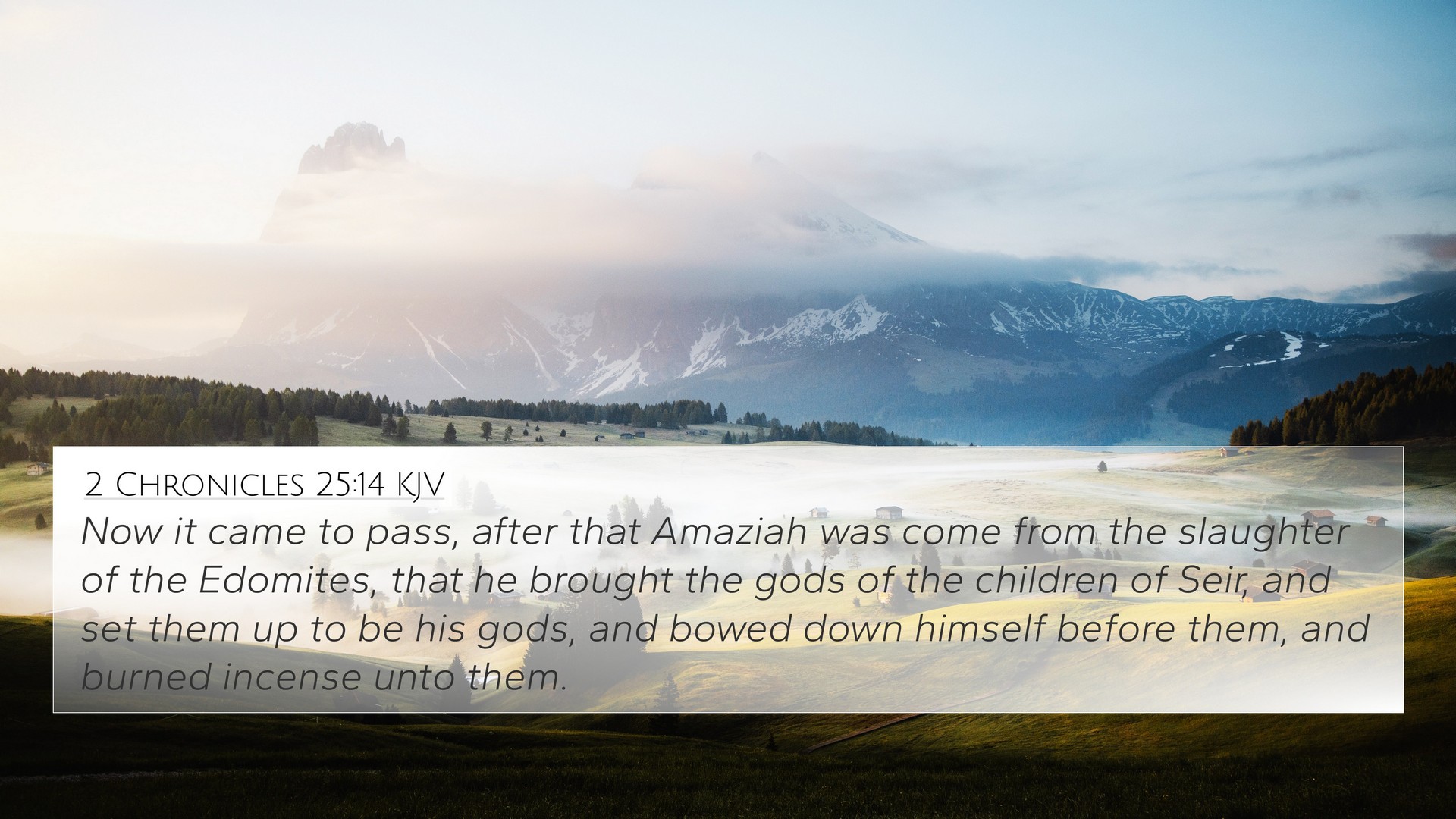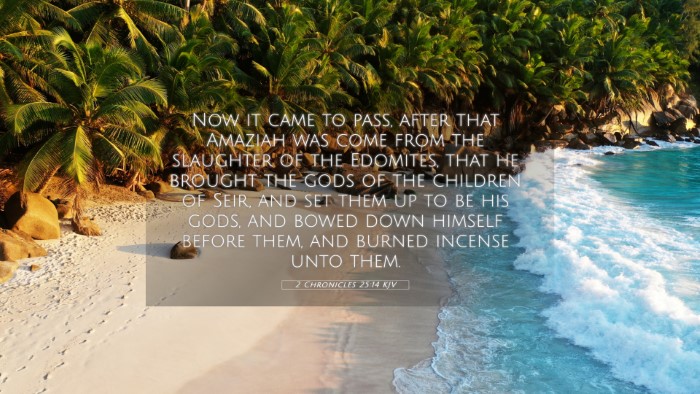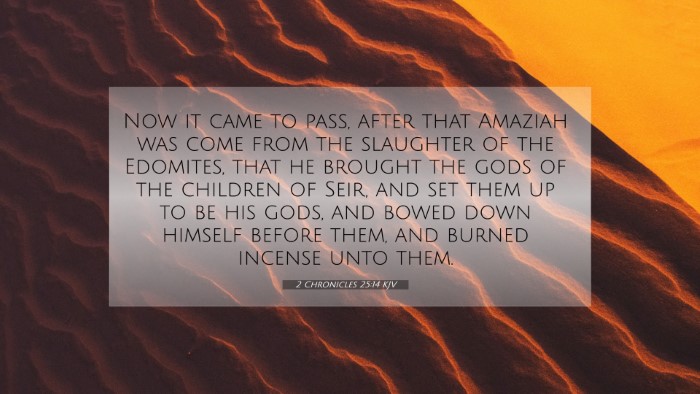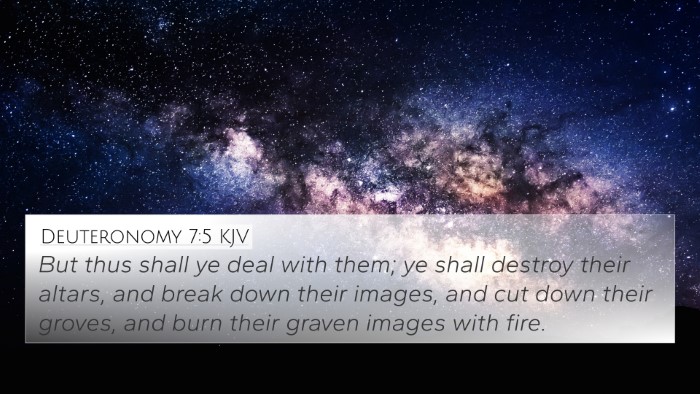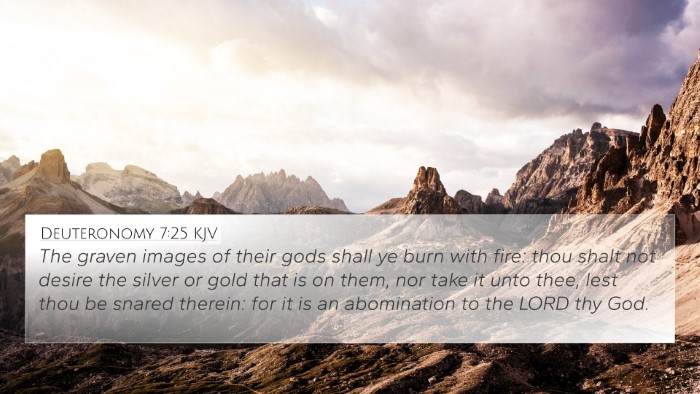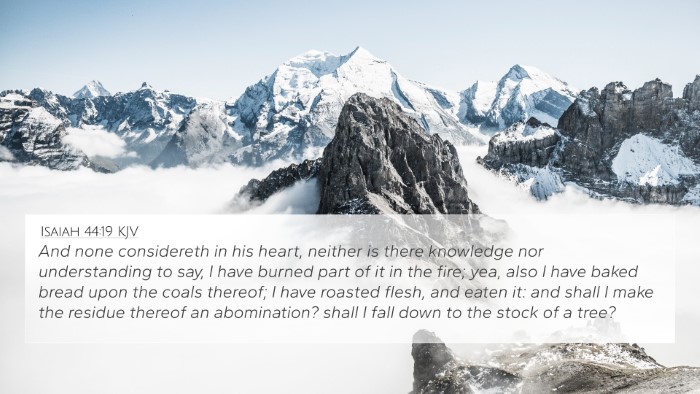Understanding 2 Chronicles 25:14
Bible Verse: 2 Chronicles 25:14 - "Now it came to pass, after that Amaziah was come from the slaughter of the Edomites, that he brought the gods of the children of Seir, and set them up to be his gods, and bowed down himself before them, and burned incense unto them."
Verse Summary
This verse narrates a significant moment in the reign of King Amaziah of Judah. After achieving victory over the Edomites, a neighboring nation, Amaziah adopts their idols and incorporates them into his worship practices. This act of idolatry reflects a spiritual decline and disloyalty to Yahweh, contrasting sharply with his earlier military success.
Commentary Insights
Matthew Henry's Commentary
Matthew Henry emphasizes the folly of Amaziah in his actions post-victory. Despite God's favor in granting him success against the Edomites, Amaziah seeks to honor foreign gods, showcasing a failure to recognize the true source of his strength. Henry warns of the peril that accompanies apostasy, where victory leads to spiritual complacency and the pursuit of false worship.
Albert Barnes' Notes
Barnes reflects on the significance of Amaziah's decision to bring back the gods of Seir. He posits that the king's choice illustrates a deeper moral and theological crisis within Israel's leadership. By substituting the worship of God for idol worship, Amaziah demonstrates a serious breach of covenant loyalty, which ultimately leads to Judah's spiritual downfall. Barnes warns against the temptation of syncretism—admixing worship traditions of different cultures.
Adam Clarke's Commentary
Clarke addresses the motivations behind Amaziah's idolatry, suggesting that the king was likely influenced by the cultural context of his victories. He underscores that the actions of Amaziah were not just personal but reflected a larger pattern of turning away from covenant fidelity among the people of Judah. Clarke also notes the consequences of this choice, which eventually leads to divine retribution as seen in subsequent chapters.
Bible Cross-References
Here are several cross-references that relate to 2 Chronicles 25:14:
- Exodus 20:3-5: God's commandment against idolatry.
- 2 Kings 14:3-4: A brief account of Amaziah's reign and actions.
- Jeremiah 7:18: The worship of gods and its consequences.
- Psalms 115:4-8: The futility of idol worship.
- Isaiah 44:9-20: A critique of idol makers and the idols themselves.
- Micah 6:16: Warning against the ways of the house of Ahab.
- 2 Chronicles 28:1-3: More examples of idolatry in Judah.
Thematic Connections
These themes illustrate the struggle against idolatry and the need for fidelity to God. By examining cross-references, we gain insight into the importance of maintaining a pure worship practice and the dangers of integrating foreign beliefs.
Conclusions
Amaziah's actions serve as a cautionary tale about the spiritual pitfalls of success. The rich commentary insights from Henry, Barnes, and Clarke illuminate the seriousness of turning away from God, providing a valuable lesson in recognizing and upholding our commitments to divine truth amidst cultural pressures. When studying Scripture, interconnected verses provide a path to deeper understanding, showing how themes of fidelity, idolatry, and divine judgment are woven throughout Biblical narratives.
Explore More
For those interested in diving deeper into the connections between Bible verses, utilizing tools like a Bible concordance or a cross-reference guide can enhance your study. Explore the relationships between different scriptures to enrich your understanding of Biblical themes and messages.
If you're looking to perform a comprehensive Bible cross-reference study, consider how these narratives interact with one another and shape our interpretation of divine principles throughout scripture.
